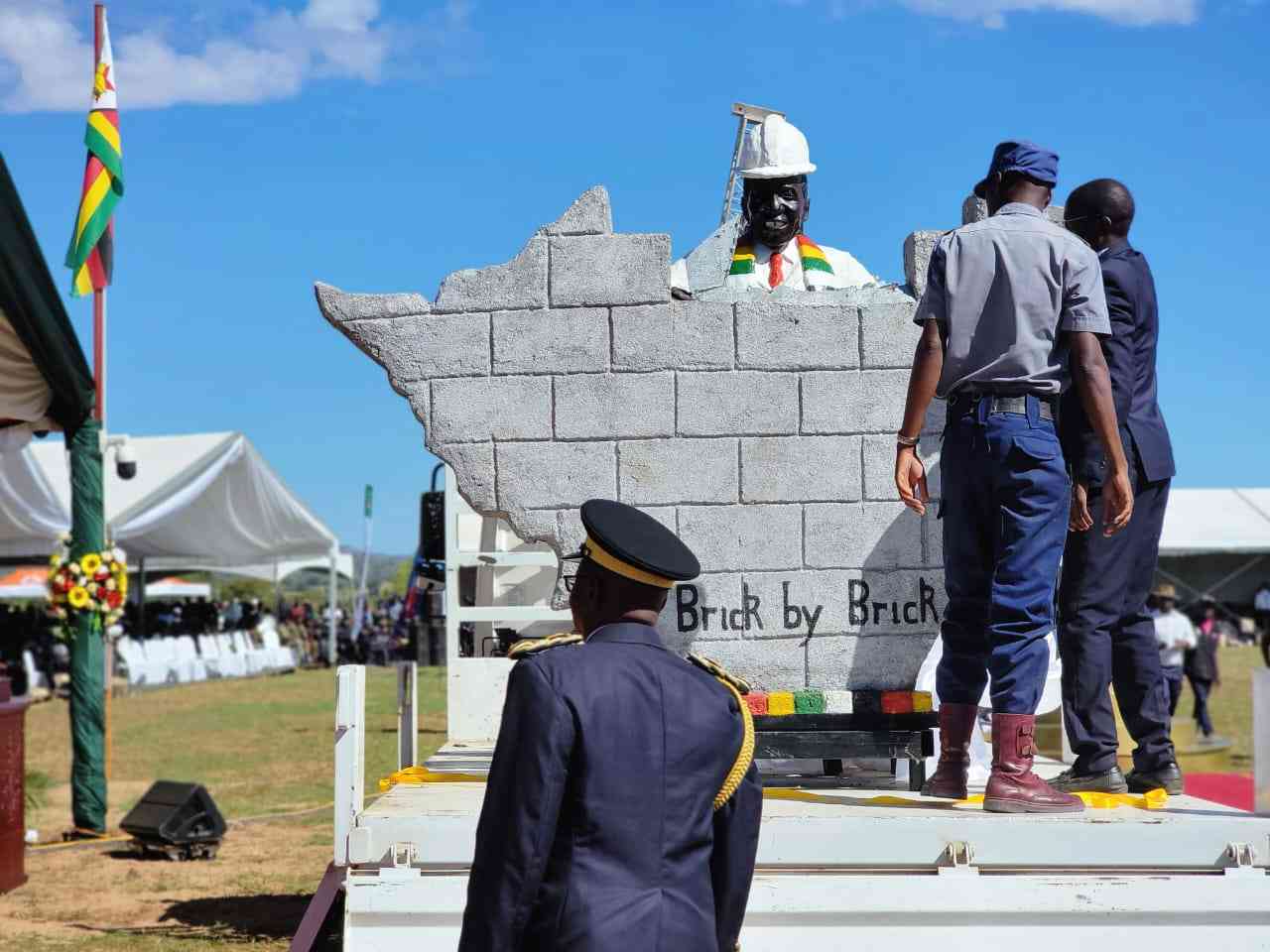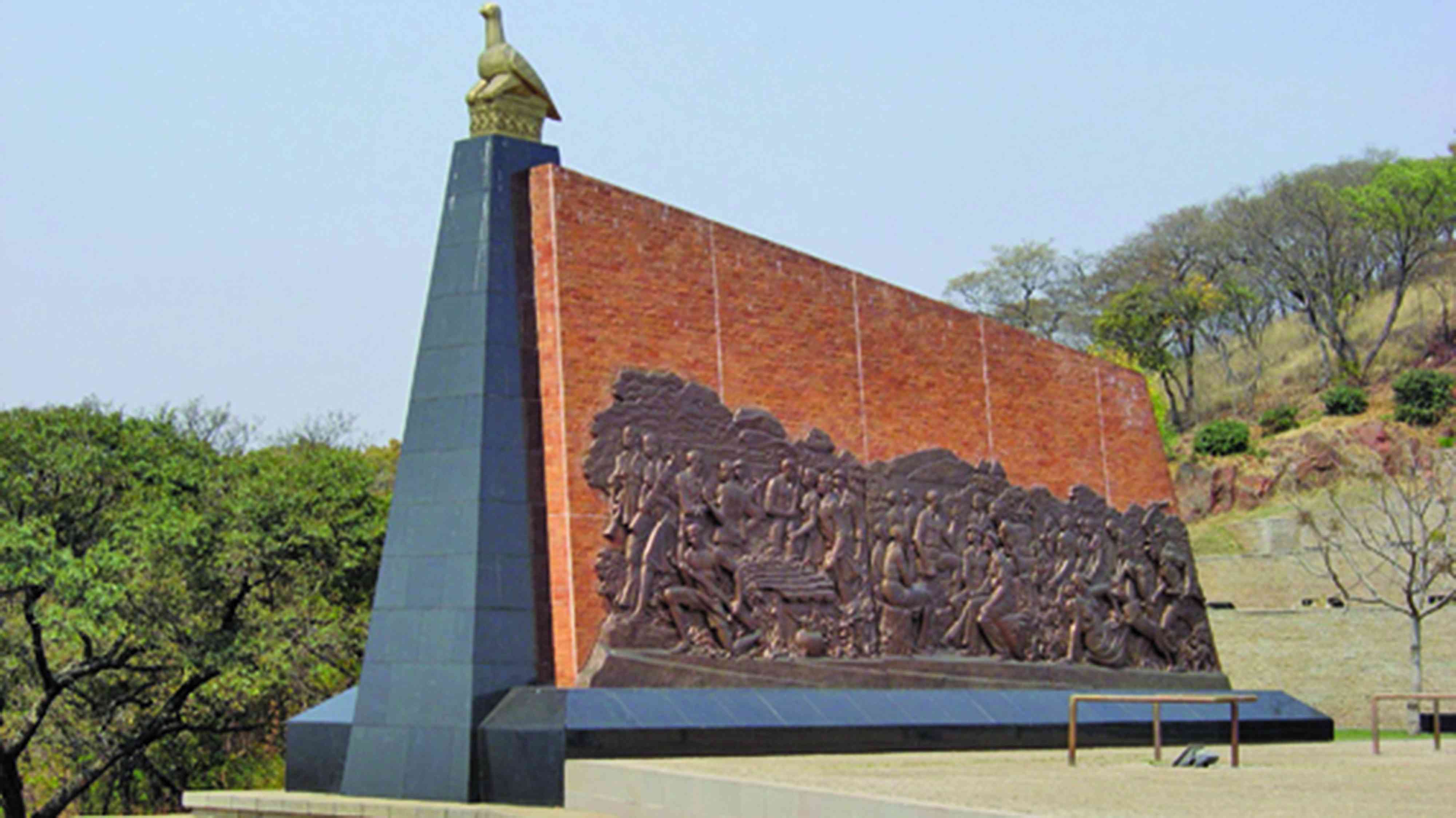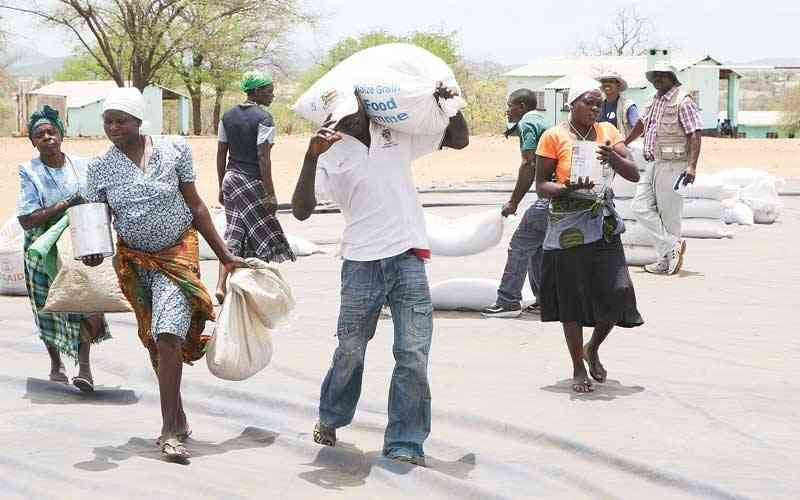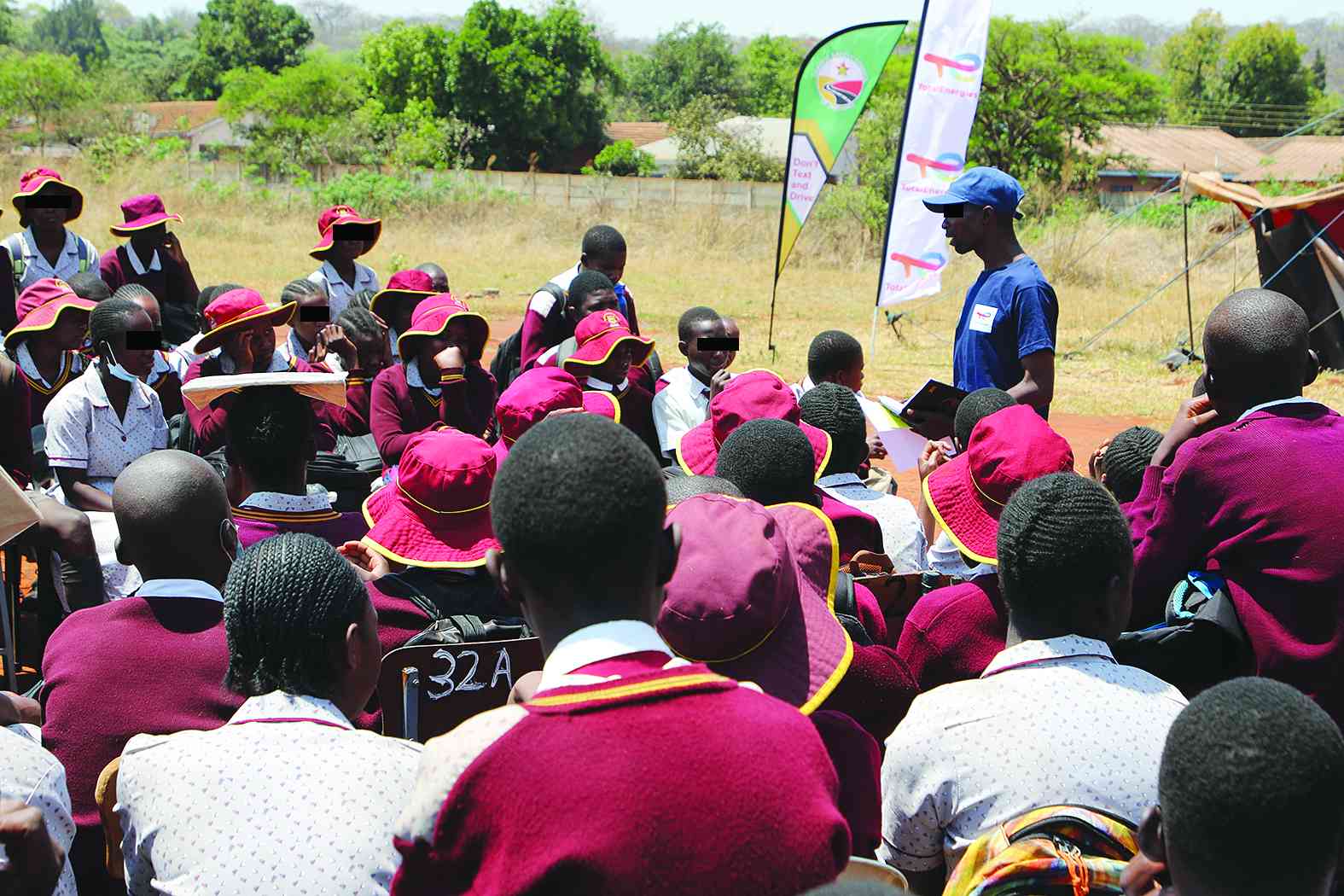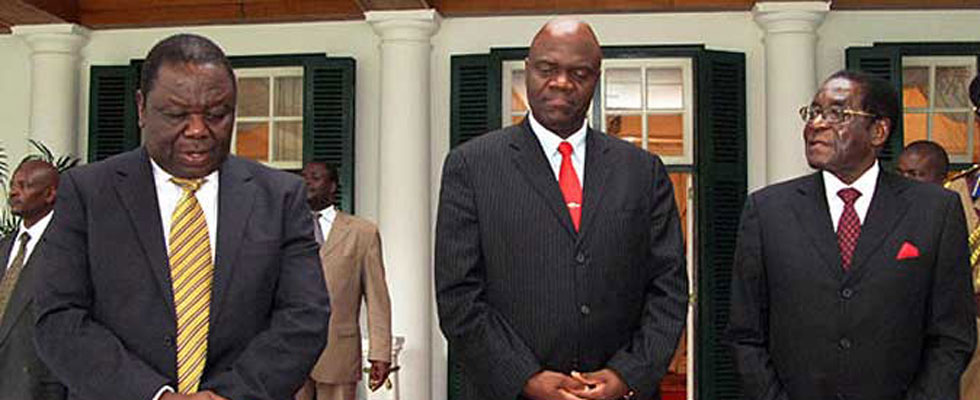
THE MDC-T may have no one, but itself to blame for the situation it finds itself in.
Report by Constantine Chimakure
As the sun sets on the unity government ushered in by the Global Political Agreement (GPA), the party is hard at work trying to hold Zanu PF to account for reforms not implemented by the government.
By revisiting the reforms agreed to under the GPA, and tracing the work delivered by the government, it lends credence to the view that once in power, the MDC-T relaxed and forgot to keep the heat on Zanu PF until the eleventh hour — and it may all be too late.
On August 4, 2010, a meeting between President Robert Mugabe, Prime Minister Morgan Tsvangirai and his deputy Arthur Mutambara came up with a roadmap for implementing problem areas which has largely not been followed though, mainly as a result of Zanu PF’s intransigence and the MDC-T’s failure to hold it consistently to account. The principals agreed on 24 out of 27 outstanding issues.
The principals did not agree on issues related to the appointment of Reserve Bank of Zimbabwe governor Gideon Gono, Attorney-General Johannes Tomana and the appointment and swearing-in of the MDC-T’s Roy Bennett as Agriculture deputy minister.
The two MDC formations have since surrendered on the appointments, with Tsvangirai appointing the late Seiso Moyo to replace Bennett.
Gono and Tomana’s cases appear to have disappeared from the MDCs’ radar.
- Chamisa under fire over US$120K donation
- Mavhunga puts DeMbare into Chibuku quarterfinals
- Pension funds bet on Cabora Bassa oilfields
- Councils defy govt fire tender directive
Keep Reading
The parties also agreed on the appointment formula of provincial governors, the principals resolved that the matter be addressed simultaneously and concurrently with the sanctions removal strategy.
Under the formula, Tsvangirai was to appoint five provincial governors, Mugabe four and Mutambara one.
Again the MDCs left this and Mugabe ended up with a huge advantage, regaining control of provinces.
Below is the implementation roadmap revisited: Media reforms: The principals resolved in August 2010 that within a month, the Broadcasting Authority of Zimbabwe board would be regularised, a new Zimbabwe Broadcasting Corporation board would be appointed and that the Zimbabwe Mass Media Trust (ZMMT) would be set up.
Minister of Media, Information and Publicity Webster Shamu and the parliamentary standing rules and orders’ committee were tasked to execute the mandates, but three years down the line no changes have taken place. Shamu has now adamantly declined to reconstitute the said boards and the ZMMT is non-existent.
Security institutions: Security ministers Kembo Mohadi, Theresa Makone, Emmerson Mnangagwa and Sydney Sekeremayi, the National Security Council, the principals and entire leadership of political parties were mandated to ensure that Police Commissioner-General Augustine Chihuri, Tomana and other State security organs comply with Articles 11 and 13 of the GPA on a continuous basis.
The articles advocate the respect and upholding of the Constitution and the adherence to the principles of the rule of law.
The articles emphasise that State institutions do not belong to any political party and should be impartial.
Zimbabwe’s police, army and the Central Intelligence Organisation remain partisan with service chiefs openly campaigning for Mugabe.
The MDCs have only been recently exerting pressure on Mugabe, with no success, to force security sector reforms.
Sanctions: The principals agreed on an immediate sanctions removal campaign to be executed by a committee made up of Justice minister Patrick Chinamasa (Zanu PF), Energy minister Elton Mangoma (MDC-T) and International Co-operation minister Priscilla Misihairabwi-Mushonga.
Party leaders, executive party organs and other lower levels of the three political parties were also tasked to lobby for the removal of the embargoes.
The campaign seemed to have worked, especially after the March 16 draft constitution referendum that saw the European Union and the United States easing the sanctions on Zimbabwe.
External radio stations: It was resolved that the Joint Monitoring and Implementation Committee (Jomic) and a committee should within one month call on foreign governments hosting and funding pirate radio stations to stop “interference in the internal affairs of the country”.
No such call has been made three years down the line. The three coalition partners are all using these stations to get their messages to remote areas not serviced by the national broadcaster.
Hate speech: On a continuous basis, the principals agreed that the late Vice-President John Nkomo, on behalf of government leadership, Shamu, the media council and Jomic should direct the media to support all agreed government programmes and put a stop to attacks on ministers implementing the projects.
In the past three years, there has been an escalating hate attack on the MDC formations, especially against Tsvangirai, in the State-run media.
Tsvangirai and the MDC formations have complained without success to Mugabe.
Ministerial allocations: Principals agreed that for the maintenance of cohesion and progress, the status quo must be maintained, but continuously monitored, hence the continued
co-ministering of the Ministry of Home Affairs.
Land audit: Lands minister Herbert Murerwa and a Cabinet committee on resettlement and development and the principals were mandated to appoint an inclusive and balanced land audit commission by the beginning of September 2010.
That has not happened, with Murerwa last week saying government had abandoned the project due to lack of funds.
Land tenure: Murerwa and a Cabinet committee were tasked with coming up within two months with land tenure systems with emphasis on a leasehold system that guarantees security of tenure and collateral value of land, without reversing the land reform programme.
They were also asked to be creative and establish tenure systems that take into account the different circumstances of communal land.
That agreement was never executed. Electoral vacancies: Mugabe, Tsvangirai and Mutambara agreed that during the subsistence of the inclusive government, the three parties would not contest against each other.
Cabinet and Council of Ministers: The government leadership endorsed the Cabinet and Council of Ministers’ Rules, Guidelines and Procedures. This was immediately implemented.
Ministerial mandates: It was agreed that the Chief Secretary to the President and Cabinet Misheck Sibanda and Secretary in the Prime Minister’s Office Ian Makone meet and submit a report on the issue to the principals.
Some Acts of Parliament were later re-assigned with the MDC-T crying foul after Mugabe allocated communications legislation to Transport minister Nicholas Goche at the expense of Information Technology Communication minister Nelson Chamisa.
Principals’ transport: The Office of the President and Cabinet was tasked with coming up with an administrative arrangement for Tsvangirai’s fleet. The Premier was provided with a “mini-motorcade” immediately.
Tsvangirai, Mutambara aides: Sekeremayi was asked to speedily process vetting, training and engagement of security personnel for Tsvangirai and Mutambara. The task was executed.
Parallel government: The principals agreed that Jomic should continuously monitor and evaluate allegations that Tsvangirai was running a parallel government funded by donors. No report on the issue was ever made public.
External interference: The coalition partners agreed to continuously condemn in unison any external interference as and when they occur.
National Economic Council: Mugabe, Tsvangirai and Mutambara agreed to expedite the establishment of the National Economic Council within a month. The council remains a pipedream.
Constitutional Commissions: The government regularised the appointment of the Zimbabwe Human Rights Commission and the Zimbabwe Anti-Corruption Commission.
National Heroes: The principals agreed to, within two months, expedite the adoption of non-partisan and inclusive principles and framework for designation of national heroes. The agreement was never followed through with Zanu PF’s politburo continuing to accord hero status to who it deems fit.
George Charamba status: The chairperson of the Public Service Commission Mariyawanda Nzuwah and Misheck Sibanda were tasked to ensure that Secretary for Media, Information and Publicity ministry and also Mugabe’s spokesperson, George Charamba, is apolitical.
Charamba continues to dabble in partisan politics.
Constitutional Amendment 19: Justice minister Patrick Chinamasa ensured that Constitutional Amendment 19, which captures the GPA, was gazetted and assigned as directed by the principals.
Right to freedom of association and assembly: Chihuri, Mohadi and Makone were tasked to immediately re-affirm the right to freely organise political activities. The MDCs still complain of being barred by the police from holding rallies.
Role, funding of NGOs: The principals resolved that government should determine priority areas for donor assistance through the Cabinet aid co-ordination committee.
No timeline was put in place. The committee and Cabinet were also charged with ensuring that government improves aid co-ordination and achieve budget support.
Amendments to the Electoral Act: Chinamasa, Cabinet and Parliament were mandated by the principals to ensure the Electoral Act is amended to allow free and fair polls.
The Act was altered.
More than three-quarters of the agreed outstanding issues were not implemented. It is also highly unlikely that putting the heat on Zanu PF at the eleventh hour before elections will yield results as it realises that with the status quo, it is in a stronger position than before.



